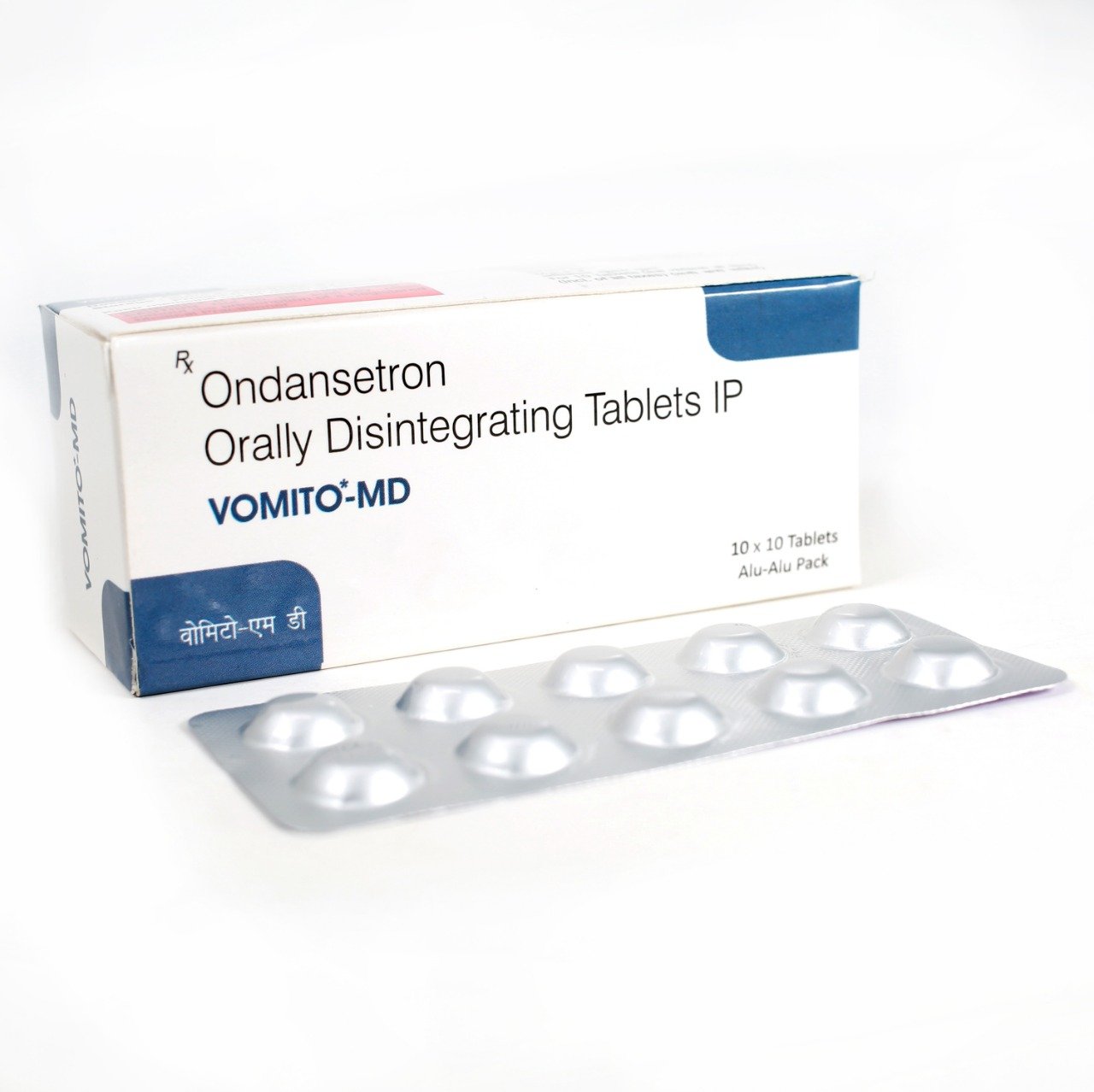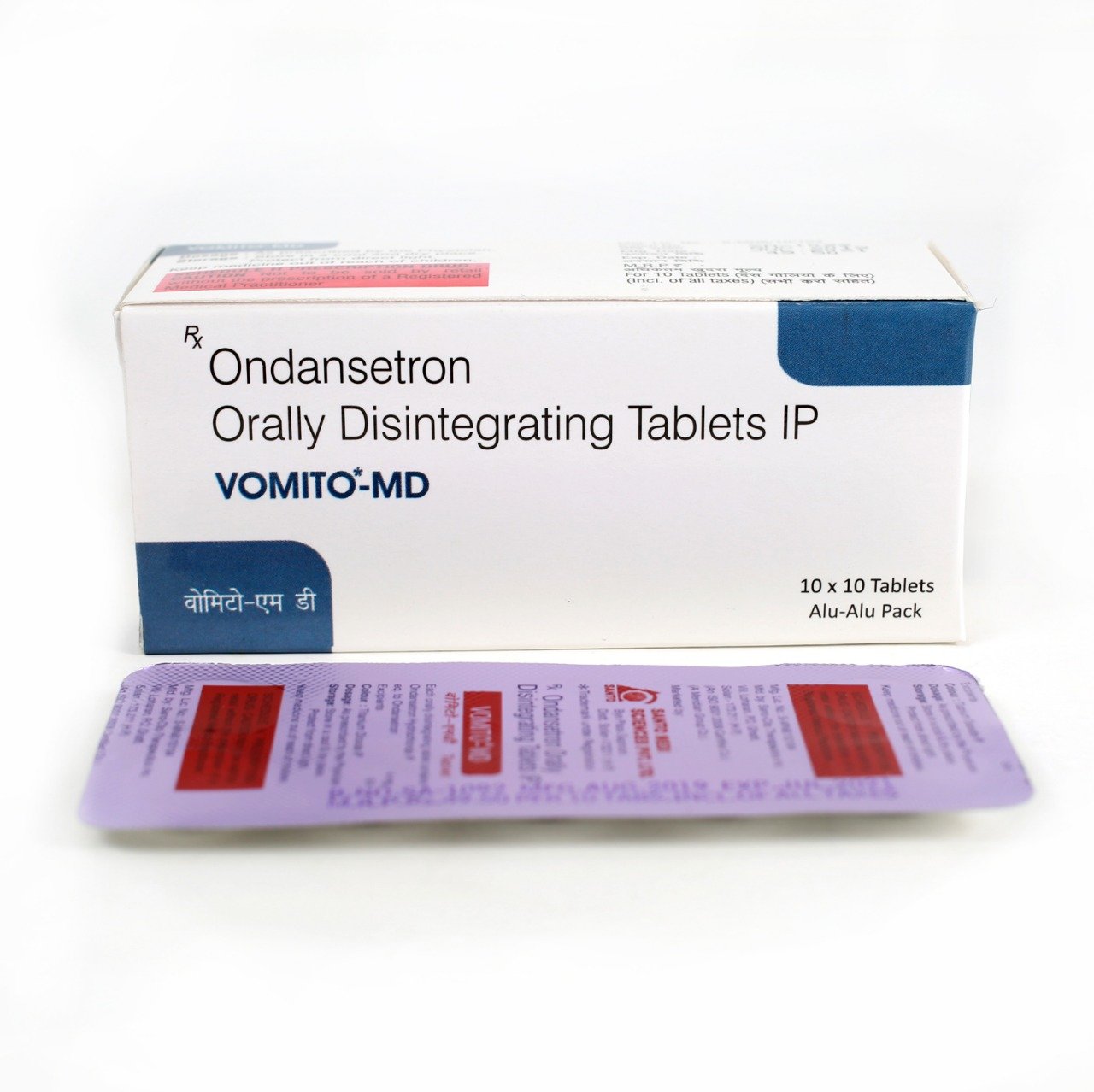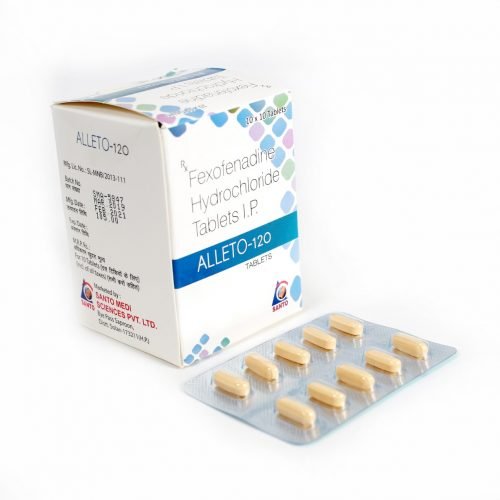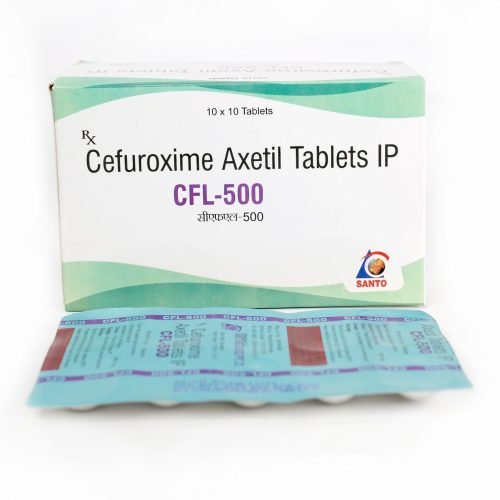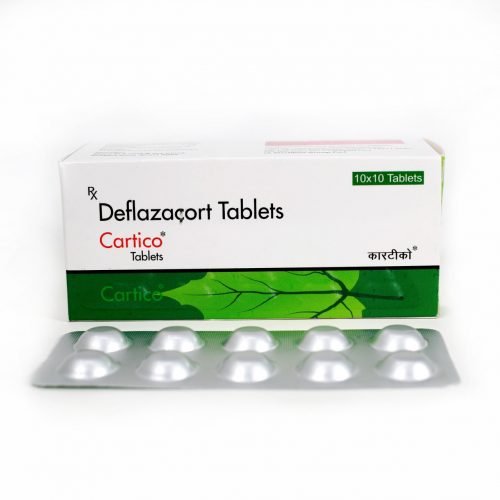- 01792-220191, 09839141955, 06390845955
- SCO No. 2 & 3, Block-B;Office No.-249A; 2nd Floor, Motia Plaza Baddi-173205; Distt. Solan (H.P.)

TRAFEN
September 19, 2019
ACITO-P (SUSP)
September 19, 2019VOMITO-MD
| Brad Name | Vomito-MD |
| Composition | Ondansetron 4mg ( Mouth Disolving Tablets) Tablets |
Ondansetron 4mg ( Mouth Disolving Tablets) Tablets
Ondansetron blocks the actions of chemicals in the body that can trigger nausea and vomiting.Ondansetron is used to prevent nausea and vomiting that may be caused by surgery, cancer chemotherapy, or radiation treatment.Ondansetron may be used for purposes not listed in this medication guide.
Important information
You should not use ondansetron if you are also using apomorphine (Apokyn).
You should not use ondansetron if you are allergic to it or to similar medicines such as dolasetron (Anzemet), granisetron (Kytril), or palonosetron (Aloxi).
Before taking ondansetron, tell your doctor if you have liver disease, or a personal or family history of Long QT syndrome.
Ondansetron orally disintegrating tablets may contain phenylalanine. Tell your doctor if you have phenylketonuria (PKU).
Serious side effects of ondansetron include blurred vision or temporary vision loss (lasting from only a few minutes to several hours), slow heart rate, trouble breathing, anxiety, agitation, shivering, feeling like you might pass out, and urinating less than usual or not at all. Stop taking this medicine and call your doctor at once if you have any of these side effects. Ondansetron may impair your thinking or reactions. Be careful if you drive or do anything that requires you to be alert.
Along with its needed effects, ondansetron may cause some unwanted effects. Although not all of these side effects may occur, if they do occur they may need medical attention.
Check with your doctor immediately if any of the following side effects occur while taking ondansetron:
Side Effects
- Confusion
- dizziness
- fast heartbeat
- fever
- headache
- shortness of breath
- weakness
Less common
- Decrease in the frequency of urination
- decrease in the urine volume
- difficulty with passing urine (dribbling)
- painful urination
Rare
- Arm, back, or jaw pain
- chest pain or discomfort
- chest tightness or heaviness
- convulsions
- cough
- decreased urine
- difficulty with breathing
- dry mouth
- fast, pounding, or irregular heartbeat or pulse
- increased thirst
- loss of appetite
- loss of bladder control
- loss of consciousness
- mood changes
- muscle pain or cramps
- nausea or vomiting
- noisy breathing
- numbness or tingling in the hands, feet, or lips
- puffiness or swelling of the eyelids or around the eyes, face, lips, or tongue
- skin rash, hives, or itching
- sweating
- tightness in the chest
- total body jerking
- unusual tiredness or weakness
- wheezing

